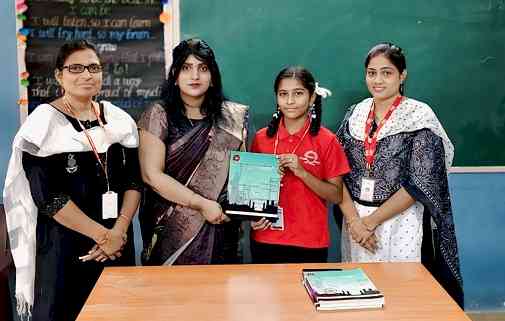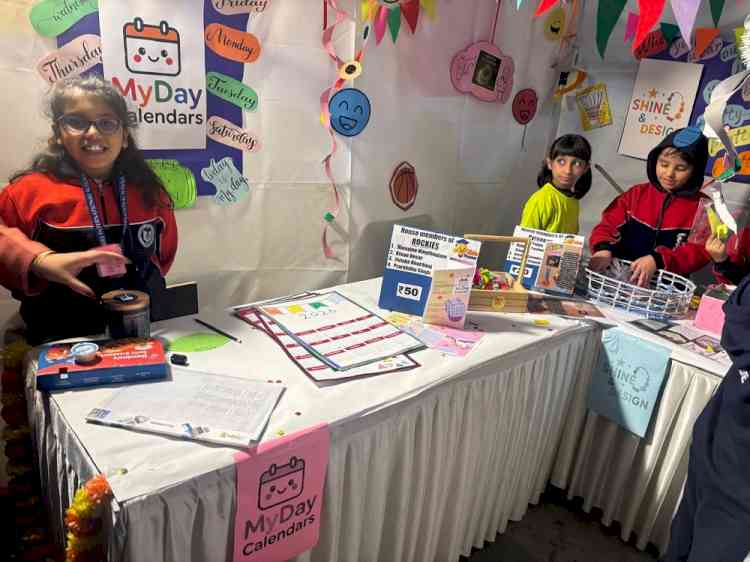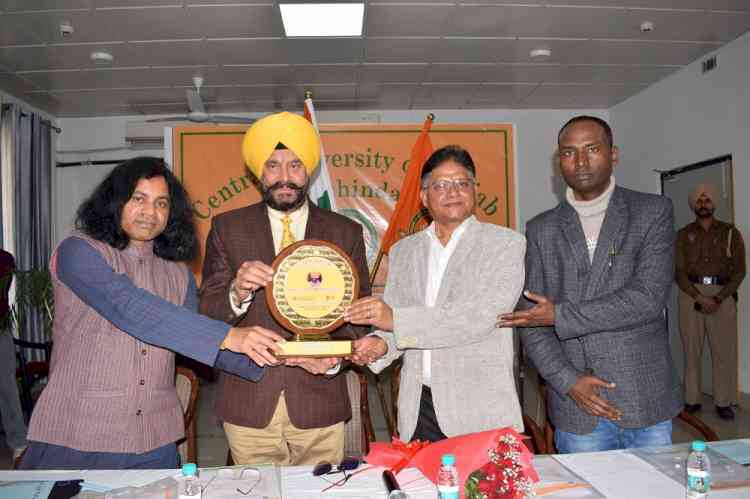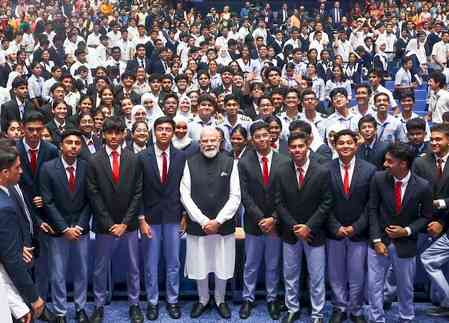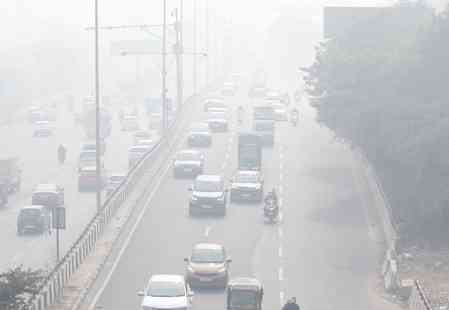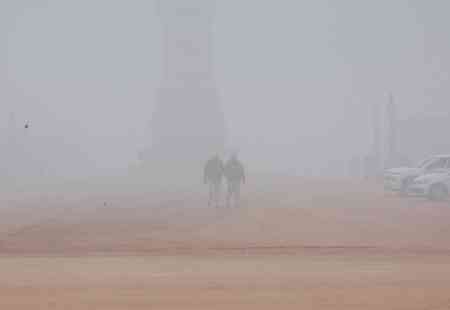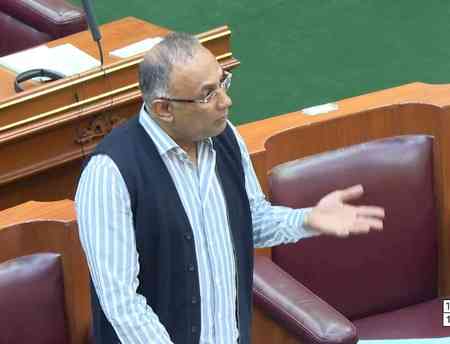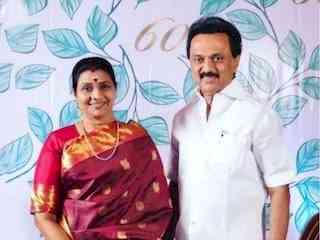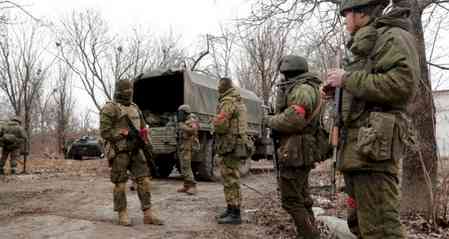National Seminar on theme “Emerging Security Paradigms of Greater West Asian Region”
The Department of Defence and National Security Studies, Panjab University, Chandigarh in collaboration with Indian Council of World Affairs (ICWA), New Delhi and the Centre for the Study of Mid-West and Central Asia, Panjab University today organised a National Seminar on the theme “Emerging Security Paradigms of Greater West Asian Region” at Golden Jubilee Hall, Panjab University, Chandigarh.
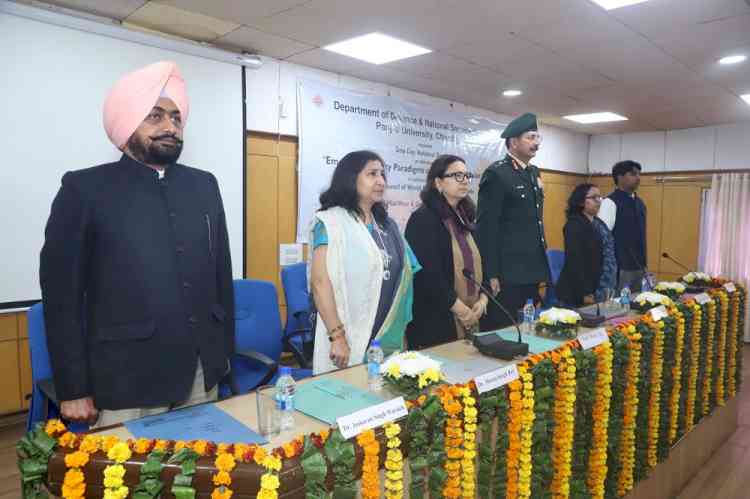
Chandigarh, February 18, 2025: The Department of Defence and National Security Studies, Panjab University, Chandigarh in collaboration with Indian Council of World Affairs (ICWA), New Delhi and the Centre for the Study of Mid-West and Central Asia, Panjab University today organised a National Seminar on the theme “Emerging Security Paradigms of Greater West Asian Region” at Golden Jubilee Hall, Panjab University, Chandigarh.
The seminar focused on the evolving precarious security scenario, their root causes and possible solutions in the region.
The chief guest of the seminar, Lt. Gen. Devendra Sharma, GOC-in-C, Army Training Command, Shimla, stated that the Indian national interests transcend its territorial borders, and its major interest of energy and trade lie in the greater West Asia. He mentioned hyper nationalism, historical tension and sectarianism in the region as the root causes of the crisis in the region. He emphasised that any major security crisis in the region impacts India’s interests directly.
PU Vice Chancellor Prof. Renu Vig gave the presidential remarks at the inaugural session. She stated that peace is the way ahead for any nation and region, where state actors should invest their energy in building education facilities, infrastructure, and promote research and innovation for peaceful and prosperous societies.
In her keynote address, Dr. Meena Singh Roy, Chairperson Greater West Asia Forum, India pointed out that the region is one of the most disturbed ones. But at the same time, West Asia is unfolding and a new political and economic order is on the horizon.
Dr. Jasbir Singh, Chairperson, Department of History, Panjab University delivered a vote of thanks at the culmination of the inaugural session.
Earlier, Dr Jaskaran Singh Waraich, Chairperson, Department of Defence and National Security Studies welcomed the speakers, guests as well as faculty members, research scholars and students present for the event. He also introduced the esteemed speakers to the audience. Dr. Lakshmi Priya, Research Fellow, ICWA explained the importance of the study, deliberation and research on the evolving security situation and its root causes in the greater West Asian, due to their direct impact on India’s interests.
Prof. Pampa Mukherjee, Chairperson, Department of Political Science, Panjab University chaired the first technical session.
The first speaker Lt. Gen. Jagbir Singh Cheema, former Vice Chancellor, MBPS university, Patiala covered three main disruptive events viz Israel-Gaza conflict, Bashar al-Assad and return of President Donald Trump, which are primarily shaping the geopolitics of the region.
Prof. Karori Singh, Emeritus Professor of South Asian Studies, University of Rajasthan, Jaipur remarked that the causes of conflict are very deep, the symptoms are multifaceted and the future seems uncertain until Israel and Palestine exhibit wisdom to thrive in co-existence. Prof. Swaran Singh, Professor for Diplomacy and Disarmament, JNU, New Delhi discussed the emerging and important engagement of China in the greater West Asian Region. Dr. Atul Aneja, former editor at the Hindu emphasised that India should secure its strategic autonomy balancing between US and Iran through a more proactive foreign policy approach which should include academia and Track II diplomacy.
In the post lunch session, a second technical session was organised, which was chaired by Prof. Manvinder Kaur, department of Women Studies, Panjab University. Lt. Gen. I. S. Singha, Director Global and Government Affairs, TAC Security remarked that the UN has the key role in any possible solution to the turmoil in the Great West Asian region. Maj. Gen. Amarjit Singh (Retd.) spoke on the complex topic of sovereignty and the Middle East. Sh. Bipin Chandra, a prominent defence and aerospace journalist, CEO and editor of Arming India expressed his deep concern on the possible grave economic implications for India due to continuous conflict in the region. Dr. Gurjit Kaur, Assistant Professor at the Political Science department of Panjab University delved into the topic of possible geopolitical implications of regime change in Syria for the Greater West Asian region. Dr. Kabir Taneja, Deputy Director and Fellow, Middle East Strategic Studies Program, Observer Research Foundation, New Delhi, elaborated on the important role of non-state actors in the geopolitics of the great West Asian region.
Lt. Gen. Raj Shukla (Retd.), member UPSC, former GOC-in-C ARTRAC delivered the valedictory address. Prof. Yajvender Pal Verma, Registrar, Panjab University delivered presidential remarks. The guest of honour, Dr. Ravindra Singh, Civil Services UK, Head of Digital and Systems Team, Cabinet Office, London was the guest of honour at the seminar. He gave a global perspective on the ongoing turmoil in the greater West Asian region. The seminar concluded with the common understanding among the experts and participants to organise more such efforts in the direction of building comprehensive understanding of the region. The seminar was attended by the faculty, research scholars, students of the University and also serving and retired military personnel attended the event.


 City Air News
City Air News 
